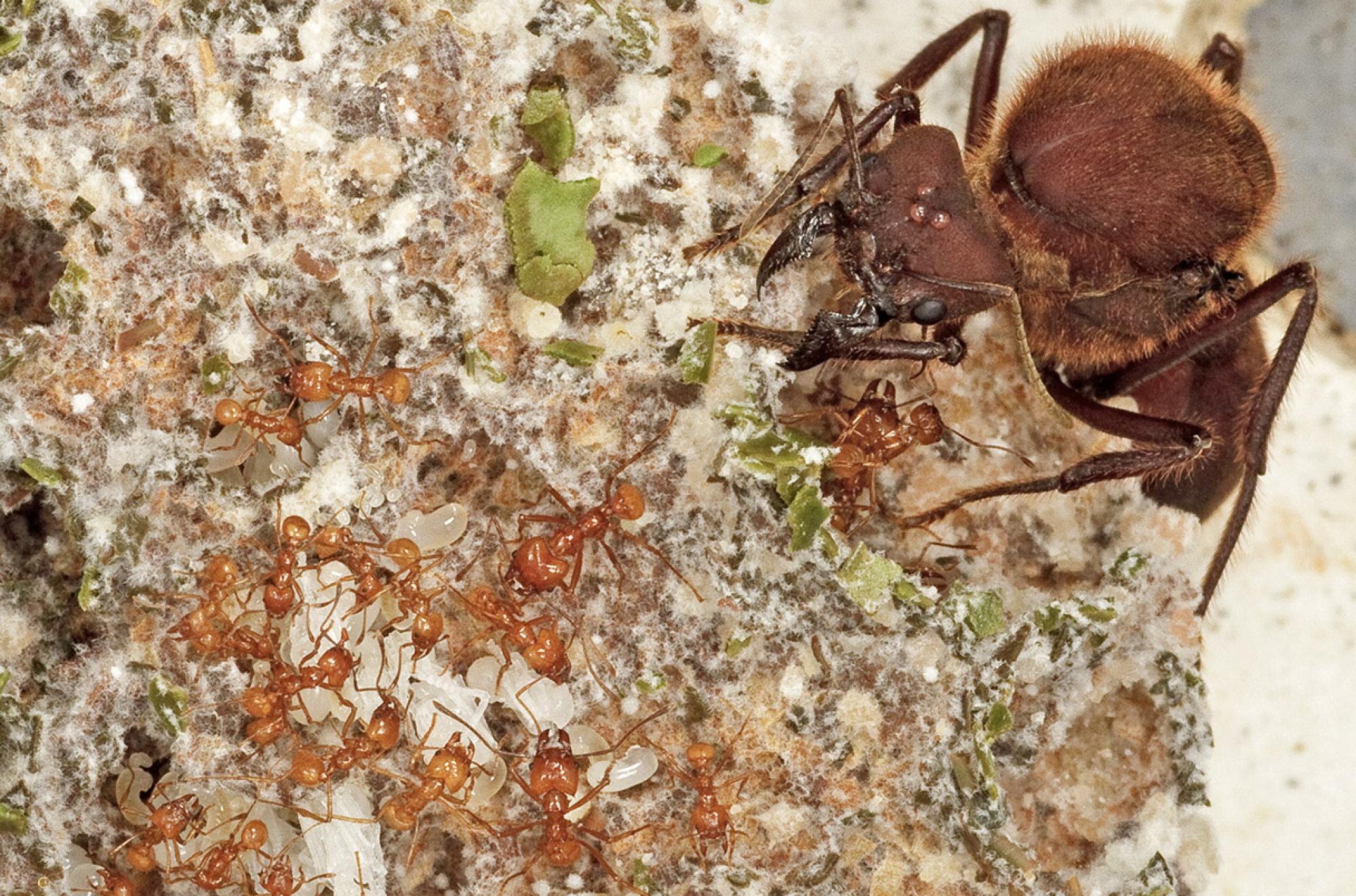Related Stories
Asteroid impact may have turned ants into fungus farmers 66 million years ago
Key Excerpts from Article on Website of Science

Posted: October 28th, 2024
https://www.science.org/content/article/asteroid-impact-may-...
Hundreds of ant species farm fungi today, and studies of ant evolution suggest the adaptation goes back tens of millions of years. Now, scientists have sharpened the picture by bringing in the fungal family tree as well. They pinpoint a date for the origins of the partnership and suggest a surprising catalyst: the asteroid that killed the dinosaurs 66 million years ago. Since ants’ fungal gardens were first described 150 years ago, entomologists have uncovered 247 species of ants that tend them and rely on this fungal crop to survive. Researchers surmise that the ants descend from a common ancestor that later evolved into separate species nurturing different types of fungi. The ant and fungal taxa involved in farming both arose about 66 million years ago, which coincides with the massive asteroid strike that drove nonavian dinosaurs and many other species extinct. That cataclysmic impact produced lingering clouds of debris that shut down photosynthesis across the planet for several months, possibly even years. Researchers suggest ants that had already developed a loose relationship with fungi were ready to take advantage of this newly abundant source of food. For the first few million years, the ants tended fungal species also found in the wild. Then, about 27 million years ago, a subset of ants completely domesticated their fungal cultivars, just as humans have done with most of our staples, which are now remote from their wild roots.
Note: Explore more positive stories like this on animal wonders.
Related Stories
Top Inspiring News Articles
Top Inspiring News Articles from Years Past

























































































